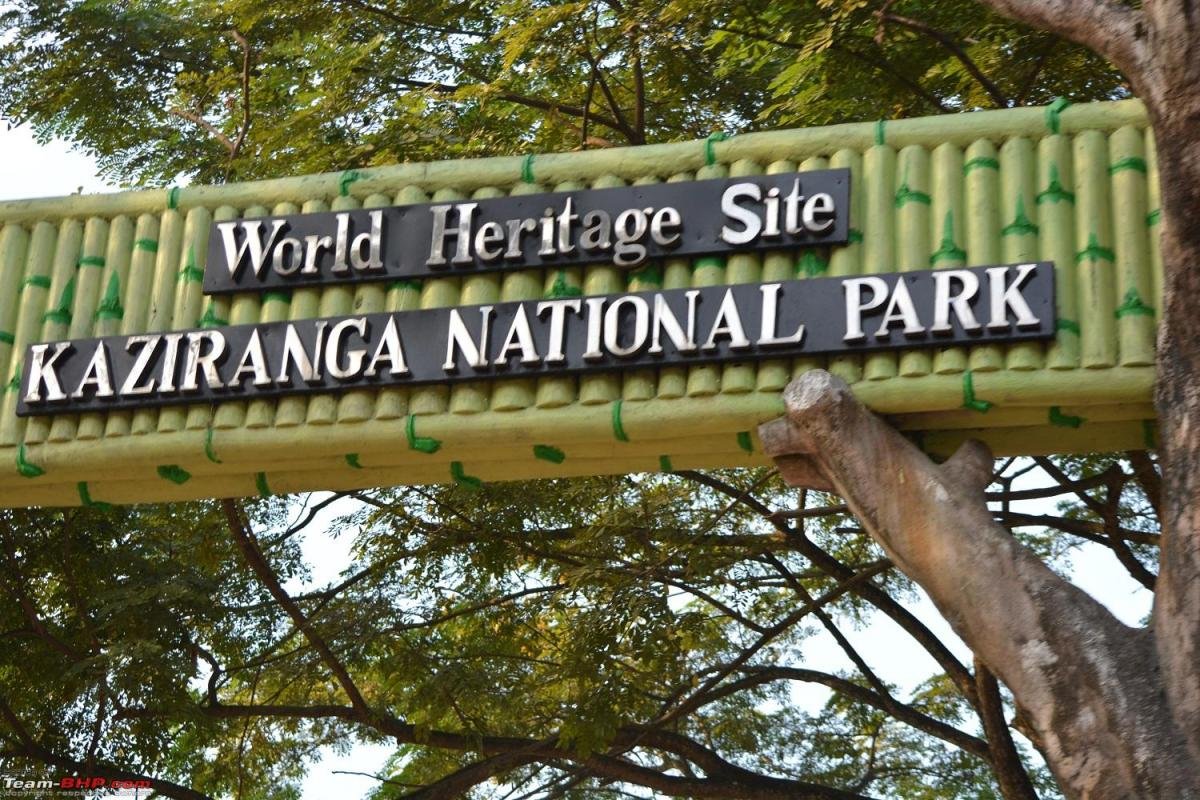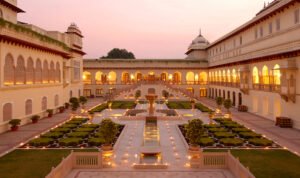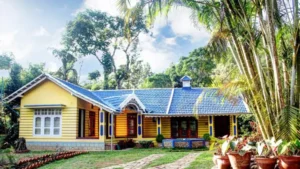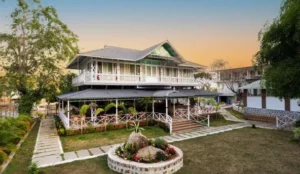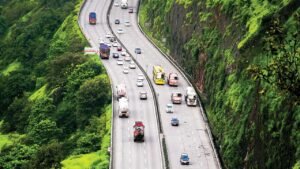Overview
Located in Assam, Kaziranga National Park is a UNESCO World Heritage Site and one of India’s most celebrated wildlife reserves. It is world-famous for being home to the largest population of one-horned rhinoceroses, along with tigers, elephants, and rich biodiversity. Spread across 1,090 sq km, the park features grasslands, wetlands, and dense forests, offering a thriving habitat for wildlife.
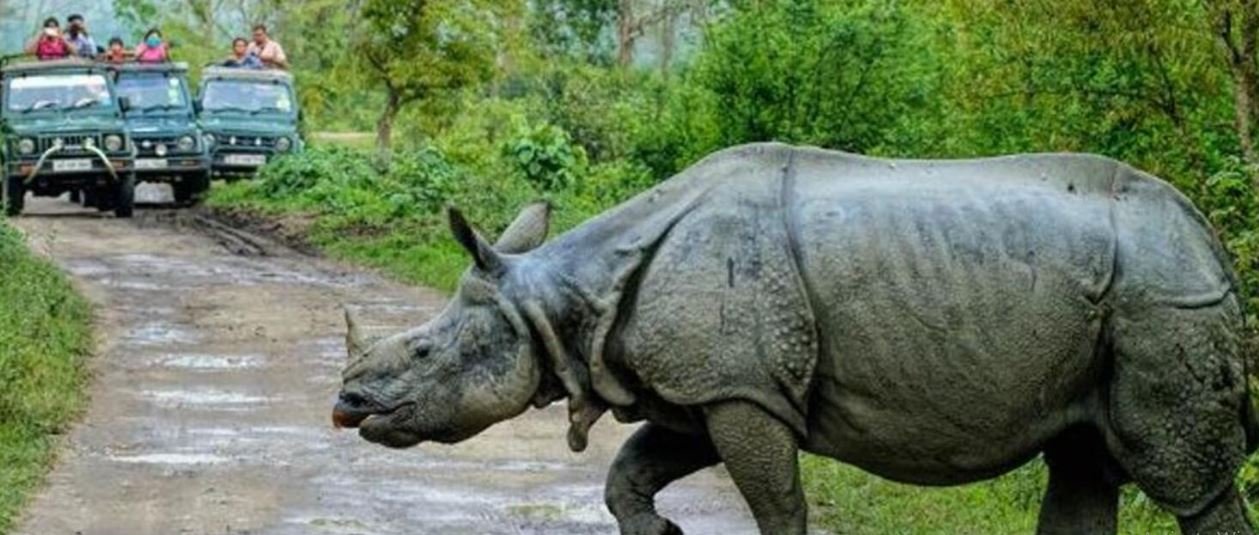
One-Horned Rhinoceros
Over 2,600 rhinos, making it the largest rhino population in the world.
Bengal Tigers
A designated tiger reserve with one of the highest tiger densities in India.
Asian Elephants
Large herds roam freely across the park.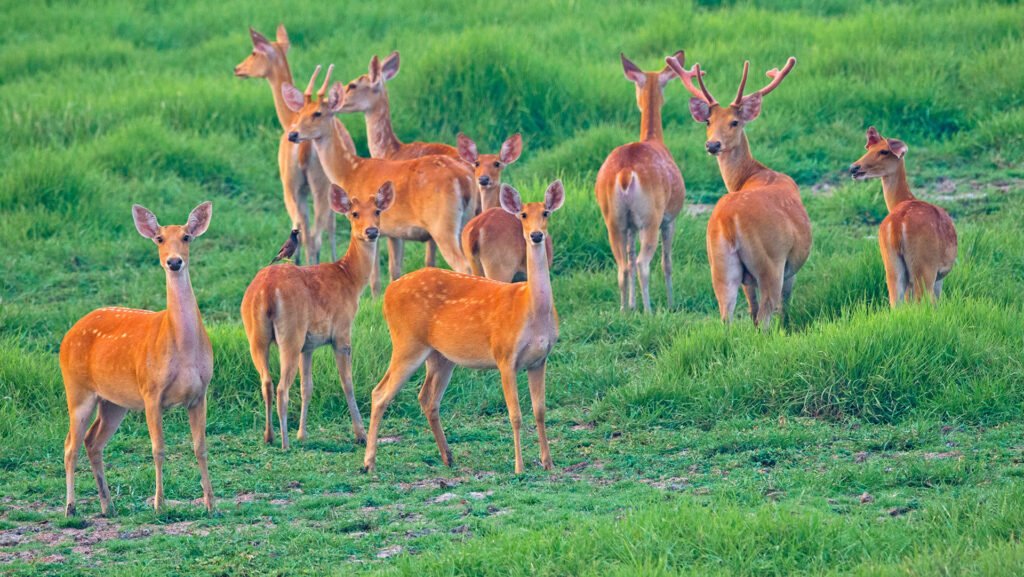
Swamp Deer (Barasingha)
A key attraction for wildlife lovers.
Wild Water Buffalo
The park shelters nearly 57% of the world’s wild water buffalo population.Birdwatching Paradise
Kaziranga is a haven for birdwatchers, with over 500 bird species, including:

Great Indian Hornbill
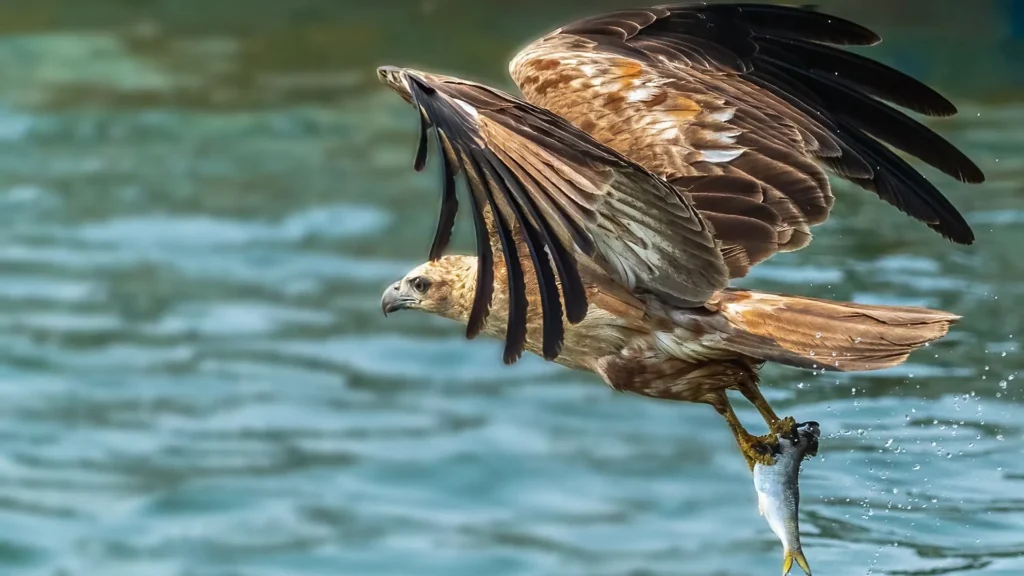
Pallas’s Fish Eagle

Black-necked Stork
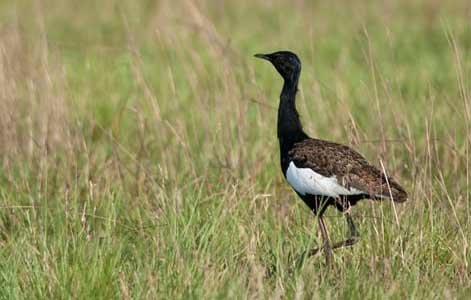
Bengal Florican (critically endangered)
Safari Options
Visitors can explore the park through:
Jeep Safari (popular for deeper exploration)
Elephant Safari (offers a closer view of rhinos)
Boat Safari (ideal for spotting river dolphins)
Best Time to Visit
November to April – Ideal for wildlife spotting and pleasant weather.
May to October – Park remains closed due to heavy monsoons and flooding.
Entry Fee & Safari Cost
Indians: ₹100 – ₹500 per person
Foreigners: ₹1,000 – ₹2,500 per person
Jeep Safari: ₹3,000 – ₹4,000 per vehicle
Elephant Safari: ₹1,200 – ₹2,000 per person
Why Visit Kaziranga?
Home to two-thirds of the world’s one-horned rhinoceroses.
Declared a Tiger Reserve, boasting high tiger density.
A UNESCO World Heritage Site with stunning landscapes and biodiversity.
Great for wildlife photography, birdwatching, and nature lovers.

